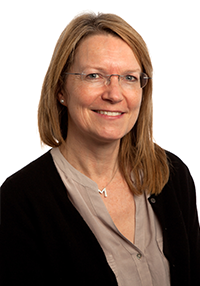Research has long been recognised and supported by clinicians for its importance in healthcare. It plays an important role in guiding treatment, care pathways and making sure that existing treatments are used in the best possible ways. Research can help to find answers to things that are unknown, filling gaps in knowledge and changing the way that healthcare professionals work and interact with patients and their families.
The Cleft Team undertakes research related to all aspects of being born with, and living with, a cleft lip and or palate and are currently expanding the role of research within the Team.
Research team

Dr Elaine Davidson, MD - Cleft Research Lead
Active Research Studies at Cleft.Net.East
The Cleft Collective Cohort Studies
The Cleft Collective cohort studies investigate the biological and environmental causes of cleft, the best treatments for cleft and the psychological impact of cleft on those affected and their families.
University of Bristol: The Cleft Collective (opens in a new tab)
Cleft Collective Speech and Language Study
This project will follow children’s speech and language development in the first three years of life and includes asking parents to record their child’s speech at 13 months, using a special recording device called LENA.
SLUMBRs2
This research study will address the key issue concerning the lack of evidence and clinical consensus regarding sleep position for infants with cleft palate. The study is a multi-centred randomised controlled trial.
Cleft Lip and Palate Association: SLUMBRs II (opens in a new tab)
Other Research
A variety of other research studies are carried out by the speciality clinicians within the Team, at different times.
Speech and Language Therapy
This current study will look at children’s early language indicators/abilities, and the relationship with Speech and Language Therapists ability to judge velopharyngeal (palate) function in children born with cleft palate, at their 18-24 month assessment point.
Taking Part in Cleft-Net-East Research Projects and Further Information
If you or your child are a patient at Cleft Net East and interested in taking part in any of these studies please get in touch by emailing Cleft Net East.
Thank you!

